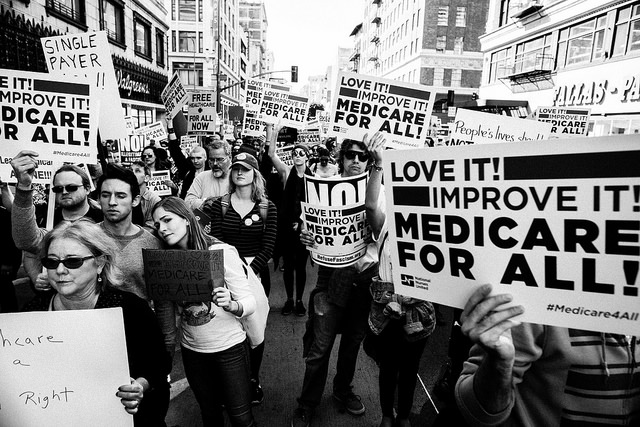In 2019, people whose modified adjusted gross income from two years ago as reported on their federal tax return–about six percent of the Medicare population–pay:
- $189.60 a month, if their income is above $85,000 and no more than $107,000 ($2.10 increase from 2018)
- $270.90 a month, if their income is above $107,000 and no more than $133,500 ($3.00 increase from 2018)
- $352.20 a month, if their income is above $133,500 and no more than $160,000 ($3,90 increase from 2018)
- $433.40 a month, if their income is above $160,000 and less than $500,000 ($4.40 increase from 2018)
- $460.50 a month, if their income is above $500,000 ($27.10 increase from 2018)
To arrive at the premium amount for married people filing a joint tax return, double the income.
The 2019 Part B annual deductible is $185, up $2.00 from 2018.
People with incomes up to 135 percent of the federal poverty level, ($1,386 in monthly income for an individual and $1,872 for a couple in 2018; these amounts may increase in 2019) are eligible for help paying their premiums through Medicaid or a Medicare Savings Program.
For more than four decades, the Medicare Part B premium (medical insurance) was the same for everyone regardless of income, geography or health status, a quarter of the cost of Part B services. (Medicare Part A, hospital insurance, is premium-free if you have contributed into Social Security for at least 40 quarters.) In 2007, wealthier people with Medicare began paying higher premiums.
Here are 2019 Medicare Part A costs:
- The Part A hospital deductible is $1,364 and coinsurance for hospitalizations after day 60 is $341 a day in a benefit period; coinsurance for lifetime reserve days is $682 a day.
- The Part A daily coinsurance for skilled nursing facility stays after day 20 is $170.50.
Here’s more from Just Care:
- How to get dental care if you have Medicare
- Six tips for keeping your drug costs down if you have Medicare
- Four things to think about when choosing between traditional Medicare and a Medicare Advantage plan
- Good news for anyone looking for help losing weight: Medicare covers weight loss counseling
- If you want easy health care access and good quality care, you probably want traditional Medicare











It should be made clear that although Medicare coverage for Skilled Nursing Facility (SNF) beneficiary cost is $0 for up to 20 days and $170.50 for days 21 through 100 after that for days 101 and beyond all costs are borne by the beneficiary. This is where Long Term Care insurance can be useful. In many states there is some form of partnership arrangement coordinating private insurance with Medicaid to allow people with such plans to qualify for Medicaid without exhausting their life savings.
It is true that Medicare only pays for limited nursing home care. Many people with Medicare spend down to qualify for Medicaid, which covers nursing home care. Most people cannot afford long-term care insurance. Many others who buy it end up letting their policies lapse as the premiums become increasingly unaffordable over time. People who want to consider long-term care insurance should speak to an independent expert. Most policies only cover limited expenses for people in limited situations. For more information, you may want to read this Just Care post: https://justcareusa.org/long-term-care-insurance-likely-wont-deliver-what-you-need/
I had no idea how subsidized Medicare is for people making high incomes. It doesn’t seem right considering they have the money to pay more for their insurance. But, it does prove the point that America could have Medicare for All. When I say All, I’m referring to people who work.
Diane, there are several states that does not allow ‘excess charges’,the 15%, to be charged to Medicare recipients. This is important in both the Advantage and Supplement plans as it can save you money. Part A hospital fees can be extremely high with the excess fees. I think all states should exempt these fee’s for Seniors.